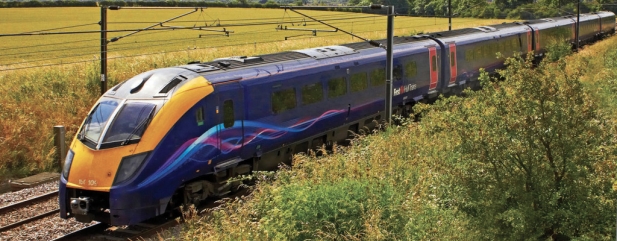Archived article
Please note that tax, investment, pension and ISA rules can change and the information and any views contained in this article may now be inaccurate.
Why recommencing dividend payments is a positive sign for investors

The decision earlier this month by Tesco (TSCO) to reinstate dividends after a two year absence represents a major turning point in its recovery story. It suggests the company’s turnaround, following an accounting scandal and slump in earnings, is making good progress.
Recommencing dividends or indeed paying dividends for the first time is a very positive signal for investors.
Respectively, it suggests earlier financial or operational problems have been fixed; or the business has reached a certain stage in its development where it is now financially capable of providing additional rewards to shareholders.
This article discusses various candidates for either dividend resumption or maiden payout including financial services groups Royal Bank of Scotland (RBS) and Aldermore (ALD); as well as transport provider FirstGroup (FGP), miner Kaz Minerals (KAZ), leisure group Dalata Hotels (DAL) and publisher Future (FUTR).
Why do companies pay dividends?
Historically the payment of a dividend has been the sign of a strong company. Theoretically it implies a business is generating more cash than is required to invest in maintaining its competitive edge. That spare cash creates a pot of money to fund dividends and/or share buybacks if it feels its shares are undervalued.
The poor rates of interest on cash savings in the UK over the past decade have led more people to invest in the stock market in hope of better returns. Companies paying a dividend have, in many cases, been particularly attractive to investors.
Sadly that has also led to some companies paying dividends simply to get people to buy their shares (and push the share price up) even though they cannot really afford to keep handing out cash or they have better uses for that money.
For example, the promise of a 7% dividend yield was a key reason why logistics group DX (DX.:AIM) managed to drum up so much interest for its stock market debut in February 2014 where it raised £200m.
Three years later DX revealed that it had won less courier and freight-related work than expected and that it was struggling with operational issues. A lot of its business has fixed costs so a drop in revenue was bad news. Its debt levels ballooned and the company was forced to suspend its dividend, leaving investors fuming.
The true cost of stopping dividends
Having to stop paying dividends because of financial issues has generally been considered a decision of last resort. Companies know they could alienate a chunk of their shareholder base if the income stream is cut off.
However, it can also be seen as sensible business practice if it means avoiding financial stress further down the line.
Let’s now look at some companies primed to restart payments after fixing problems; and later in the article we’ll look at some potential candidates for paying their first ever dividend.
DIVIDEND RESUMPTION CANDIDATES
Royal Bank of Scotland
The bank has not paid a dividend since 2008 when it bailed out by the UK Government in the teeth of the global financial crisis. Analysts believe the bank could be in a position to restart payments when it reports its 2018 financial results, meaning a first payment in early 2019.
It could be several years before shareholders see the 5%+ yields they previously enjoyed with the stock.
Investec forecasts a 5p per share dividend for the bank’s 2018 financial year which implies 1.8% yield against the latest share price of 276.3p. The dividend is forecast to hit 10p in 2019 and 15p in 2020, the latter implying 5.4% yield using the current share price.
Kaz Minerals
The copper miner last paid dividends in 2013. In 2014 it said low levels of cash generation and expenditure on growth projects didn’t warrant a continuation of cash payments to shareholders, until its situation changed.
We’re now at a turning point for the company. Its share price has rocketed over the past two years thanks to an improving copper price and successful launch of two transformational growth projects.
Some (but not all) analysts believe the miner could declare the return of dividends at the end of the 2018 financial year. The consensus forecast is 5c per share for 2018, rising to 14c in 2019, according to Reuters’ data.
FirstGroup
The bus and train operator hasn’t paid a dividend since a £615m rights issue in 2013 to shore up the balance sheet and retain its investment grade credit rating. It needed the money normally used for dividends to pay off debt.
Pre-tax profit is expected to improve considerably over the coming years and net debt is declining. That’s led analysts to believe the dividend will soon return.
Investec forecasts 2.6p per share for the financial year ending 31 March 2018, rising to 4.6p a year later.
Future
The magazine publisher has a patchy past with many years of losing money. Fortunately the business is now getting back on track and is seeing growth in its e-commerce and events businesses.
Analyst forecasts imply adjusted pre-tax profit of £2.6m in 2016 rising to £7.8m this year, £13.4m in 2018 and £15.1m in 2019.
N+1 Singer estimates £10.8m net debt this year will turn into £5.8m net cash in the year ending September 2019.
Analyst Johnathan Barrett believes Future is at the right stage of its development to recommence dividends, having last paid cash to shareholders at the end of the 2013 financial year.
A forecast 0.2p per share for the year ending September 2018 should send a positive signal about the state of the business, even though it is only a token amount.
Other candidates for dividend resumption
Having skipped a year in 2016, financial services group Standard Chartered (STAN) could bounce back with dividends at the end of its current financial year.
LED lighting technology group Dialight’s (DIA) dividend drought could soon be over. Having last paid a cash reward to shareholders at the end of its 2014 financial year, analysts now expect the dividend to return at the end of the current financial year.
MAIDEN DIVIDEND CANDIDATES
Dalata Hotels
The company floated on the stock market in 2014 as a buy-and-build operator in the hotels space. It now has a portfolio of properties in Ireland and the UK.
Although further investment in properties and IT infrastructure is on the cards, Investec believes dividends will start to be paid once the 2017 full year results are reported in early 2018.
Aldermore
The banking group in August told shareholders that dividends could be considered at the end of the current financial year if its CET1 ratio exceeded 12%. This is a measurement of a bank’s core equity capital compared with its total risk-weighted assets – or, in other words, a measure of its financial strength.
‘Having up until now been in a capital consumptive position, the company is now generating surplus capital,’ says Liberum. It believes Aldermore will start with 3p per share for the 2017 financial year, rising to 6.6p in 2018 and 8.5p in 2019.
However, this forecast might become redundant if Aldermore is taken over. As we were writing this article the bank received a takeover approach from FirstRand. (DC)
Important information:
These articles are provided by Shares magazine which is published by AJ Bell Media, a part of AJ Bell. Shares is not written by AJ Bell.
Shares is provided for your general information and use and is not a personal recommendation to invest. It is not intended to be relied upon by you in making or not making any investment decisions. The investments referred to in these articles will not be suitable for all investors. If in doubt please seek appropriate independent financial advice.
Investors acting on the information in these articles do so at their own risk and AJ Bell Media and its staff do not accept liability for losses suffered by investors as a result of their investment decisions.

 magazine
magazine

















